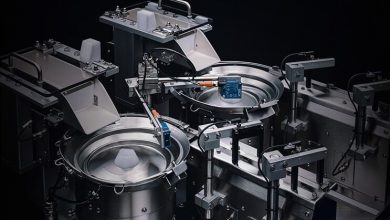The Environmental Challenges of Atlanta’s Expanding Tech Industry

Atlanta’s tech sector has been booming, making the city a significant player in the U.S. innovation landscape. From fintech startups to health tech solutions, Atlanta is quickly becoming a technology hub. However, rapid growth is not without challenges. Environmental issues are emerging as an unintended consequence of this expansion, raising concerns about sustainability and ecological balance.
Atlanta has transformed into a dynamic tech center, benefiting from access to top talent, favorable business conditions, and growing investment. Major companies like Microsoft and Google are expanding operations in the city, while local startups are thriving in sectors like fintech, cybersecurity, and logistics. This growth has driven job creation, economic development, and improved infrastructure.
However, with every innovation boom comes a need for responsible resource management. As Atlanta’s tech scene grows, it increases energy demands, real estate development, and waste production—adding stress to the environment.
Environmental Strain from Data Centers and Energy Consumption
One of the most prominent environmental challenges lies in the rising energy consumption fueled by data centers. Many tech firms rely heavily on cloud computing, artificial intelligence, and large-scale data storage, all of which require immense computing power.
Data centers consume significant amounts of electricity, often drawing from non-renewable energy sources, which contributes to carbon emissions. In addition to the energy used to power servers, these facilities require cooling systems to prevent overheating, further increasing energy usage.
Atlanta’s relatively low energy costs and central location make it an attractive place to host data centers. However, without more significant investments in renewable energy, the city risks exacerbating its carbon footprint.
Increased Real Estate Development and Deforestation
The rapid expansion of tech companies in Atlanta has led to increased demand for office spaces, coworking hubs, and tech campuses. While these developments attract talent and foster innovation, they also contribute to urban sprawl. Atlanta is already known for urban sprawl issues, with miles of paved surfaces contributing to the heat island effect.
The continuous demand for commercial real estate has led to deforestation in areas surrounding the city. Forests play a critical role in absorbing carbon dioxide, improving air quality, and supporting biodiversity. As Atlanta grows, the loss of green spaces not only worsens air pollution but also reduces the city’s ability to mitigate climate change.
E-Waste and Pollution
The tech industry is also a significant contributor to electronic waste (e-waste), one of the fastest-growing waste streams in the world. Devices such as servers, computers, smartphones, and networking equipment have short life cycles, leading to frequent replacements. Many tech firms in Atlanta regularly upgrade equipment, and startups often rely on constant iterations to remain competitive.
The improper disposal of e-waste can release toxic chemicals into the environment, polluting soil and water sources. Additionally, recycling e-waste requires energy-intensive processes that contribute to carbon emissions. If Atlanta’s tech companies do not adopt responsible e-waste management practices, the city risks facing long-term environmental damage.
Traffic Congestion and Carbon Emissions
As the tech industry attracts more professionals to the city, the population growth has intensified traffic congestion. Atlanta’s transportation infrastructure has long struggled to accommodate the increasing number of commuters, and tech workers commuting from suburban areas further strain the system.
The heavy reliance on personal vehicles contributes to carbon emissions, negatively impacting air quality. Although Atlanta is investing in public transit systems like MARTA (Metropolitan Atlanta Rapid Transit Authority), adoption rates remain relatively low. As more tech companies move into the city, addressing transportation emissions becomes crucial for sustainable growth.
Water Usage and Pollution Concerns
The rise of Atlanta’s tech industry also increases the pressure on water resources. Data centers, office buildings, and manufacturing facilities associated with tech operations consume substantial amounts of water. Cooling systems, in particular, require large volumes of water to function efficiently.
In addition, improper waste disposal and runoff from construction sites can introduce pollutants into nearby rivers and lakes. Atlanta depends on water bodies like the Chattahoochee River for drinking water and recreational activities. Therefore, unregulated water usage and pollution could have long-term impacts on the region’s water supply and biodiversity.
Promoting Sustainability in Atlanta’s Tech Sector
Despite these challenges, the tech industry in Atlanta has an opportunity to lead in sustainable practices. Companies can adopt eco-friendly strategies and collaborate with local governments and environmental organizations to promote sustainability. Here are some key strategies for reducing the environmental impact of the tech sector:
Investing in Renewable Energy
Tech companies can reduce their carbon footprint by switching to renewable energy sources such as solar or wind power. Google, for example, has committed to using 100% renewable energy in its Atlanta data centers. Other companies can follow suit by investing in energy-efficient infrastructure and supporting local green energy initiatives.
Implementing Green Building Practices
Adopting sustainable building practices can minimize the environmental impact of new developments. The use of energy-efficient materials, rooftop gardens, and green certifications like LEED (Leadership in Energy and Environmental Design) can make a significant difference. Encouraging urban planners to integrate more green spaces within the city is also essential.
Promoting Public Transit and Remote Work
Companies should incentivize employees to use public transportation or adopt flexible work-from-home policies to reduce traffic congestion and emissions. Expanding public transit infrastructure and improving last-mile connectivity can encourage higher adoption of sustainable commuting options.
E-Waste Recycling and Circular Economy Models
Implementing responsible e-waste recycling programs is crucial for reducing pollution. Tech companies can explore circular economy models, where old devices are refurbished or repurposed rather than discarded. Partnering with local recycling firms can also help ensure safe disposal and reduce environmental harm.
Water Conservation Initiatives
Adopting water-efficient technologies and monitoring systems can help reduce water usage in data centers and office spaces. Companies should also ensure that waste disposal practices comply with environmental regulations to prevent water pollution.
Conclusion
The environmental challenges facing Atlanta’s expanding tech industry are significant but not insurmountable. As the city continues to attract innovation and investment, it must also prioritize sustainability to safeguard its natural resources. By embracing renewable energy, green building practices, and responsible waste management, the tech sector can balance growth with environmental stewardship. Collaboration between businesses, government agencies, and local communities will be key to ensuring that Atlanta’s tech boom does not come at the expense of its ecological health. With thoughtful planning and a commitment to sustainability, the city can become a model for how tech hubs can thrive while minimizing their environmental impact.

Source: The Environmental Challenges of Atlanta’s Expanding Tech Industry




